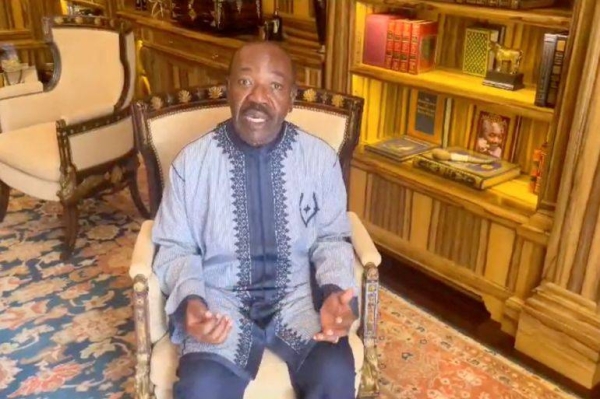
The guilty verdict and lengthy jail sentence imposed on Myanmar’s ousted civilian leader Aung San Suu Kyi on charges of inciting public unrest and breaching COVID-19 rules have drawn global condemnation after a trial that was described as a “farce.”
US Secretary of State Antony Blinken called Suu Kyi’s conviction and the repression of other democratically elected officials by the military regime an affront to democracy and justice.
“We reiterate our call for the regime to engage in constructive dialogue with all parties to seek a peaceful resolution in the interest of the people, as agreed to in the ASEAN five-point consensus. We join the people of Myanmar in their aspirations for freedom and democracy and call on the regime to end the use of violence, respect the will of the people, and restore Myanmar’s democratic transition,” he said.
The UK also called on the military leadership to release political prisoners and engage in dialogue to allow democracy to return to the country. “The sentencing of Aung San Suu Kyi is another appalling attempt by Myanmar’s military regime to stifle opposition, and suppress freedom and democracy,” Foreign Secretary Liz Truss said.
Meanwhile, the EU and UN have shared the same sentiment in support of Suu Kyi, who won international praise with her calls for nonviolent resistance during years of struggle to bring democracy to her people.
For years, Suu Kyi was viewed as a symbol of peaceful resistance against oppression and military brutality. Forced to choose between her personal freedom and the fight for her homeland, she left her British husband and their two sons in the UK in 1988 to follow in the footsteps of her father.
Aung San was a military general who became a national hero and was considered the father of modern-day Myanmar after negotiating Burma’s independence from Britain in 1947. He was assassinated when Suu Kyi was two years old.
Despite spending years under house arrest, she is still seen as one of the main threats to the military establishment in the country. The jail sentence imposed on the 76-year-old freedom fighter is just one of a series of verdicts that could keep her in detention for the rest of her life.
In 1991, while she was under house arrest, Suu Kyi was awarded the Nobel Peace Prize in recognition of her struggle for democracy in Myanmar.
Her efforts paid off when she led her National League for Democracy to victory and became the country’s leader. Then, in February, a military coup took place in Myanmar and the junta arrested Suu Kyi and the political leadership around her.
Suu Kyi’s international reputation was badly damaged when she defended the army’s actions against the mostly Muslim Rohingya minority in the UN International Court of Justice. Shockingly, she refused to condemn the violent crackdown and the atrocities committed against the Rohingya in the Buddhist-majority country in the name of confronting extremism. She maintained her silence while thousands were killed and more than 700,000 forced to flee to neighboring Bangladesh in 2017.
Despite her stance, the international community should not stop fighting for Suu Kyi’s freedom and must not allow the Myanmar military to strip the country’s people of their basic rights.
The free world should honor Suu Kyi’s struggle and ensure democracy and freedom are not compromised.
• Dalia Al-Aqidi is a senior fellow at the Center for Security Policy. Twitter: @Daliaalaqidi
Disclaimer: Views expressed by writers in this section are their own and do not necessarily reflect Arab News" point-of-view












